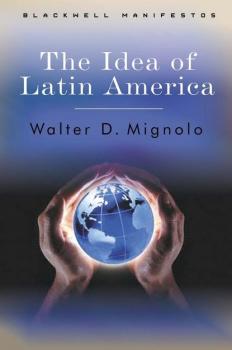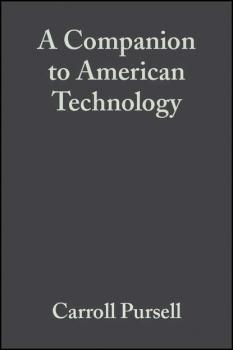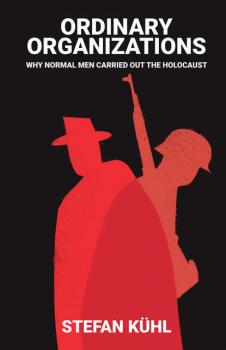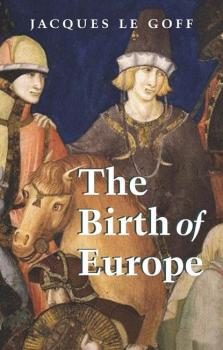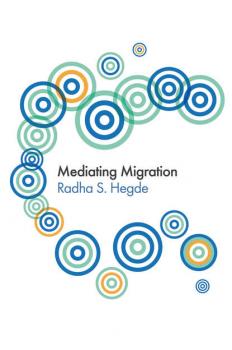Группа авторов
Список книг автора Группа авторовBecome a YouTuber
GET EYES ON YOUR VIDS If you're the type who goes to YouTube for everything from entertainment to information to a way to communicate with your friends, this is the book you need to build a channel worth subscribing to. Packed with the advice of a video production teacher who's created her own channel, this book offers step-by-step advice for building a YouTube audience. Launch your channel – establish a home on YouTube where people can find your work Create your videos – apply production tricks to create videos that viewers watch over and over again Collaborate with your audience – build a relationship with your viewers that helps your audience grow
Gutenberg's Europe
Major transformations in society are always accompanied by parallel transformations in systems of social communication – what we call the media. In this book, historian Frédéric Barbier provides an important new economic, political and social analysis of the first great 'media revolution' in the West: Gutenberg's invention of the printing press in the mid fifteenth century. In great detail and with a wealth of historical evidence, Barbier charts the developments in manuscript culture in the twelfth and thirteenth centuries, and shows how the steadily increasing need for written documents initiated the processes of change which culminated with Gutenberg. The fifteenth century is presented as the 'age of start-ups' when investment and research into technologies that were new at the time, including the printing press, flourished. Tracing the developments through the sixteenth century, Barbier analyses the principal features of this first media revolution: the growth of technology, the organization of the modern literary sector, the development of surveillance and censorship and the invention of the process of 'mediatization'. He offers a rich variety of examples from cities all over Europe, as well as looking at the evolution of print media in China and Korea. This insightful re-interpretation of the Gutenberg revolution also looks beyond the specific historical context to draw connections between the advent of print in the Rhine Valley ('paper valley') and our own modern digital revolution. It will be of great interest to students and scholars of early modern history, of literature and the media, and will appeal to anyone interested in what remains one of the greatest cultural revolutions of all time.
What is Urban History?
Urban history is a well-established and flourishing field of historical research. Written by a leading scholar, this short introduction demonstrates how urban history draws upon a wide variety of methodologies and sources, and has been integral to the rise of interdisciplinary and comparative approaches to history since the second half of the twentieth century. Shane Ewen offers an accessible and clearly written guide to the study of urban history for the student, teacher, researcher or general reader who is new to the field and interested in learning about past approaches as well as key themes, concepts and trajectories for future research. He takes a global and comparative viewpoint, combining a discussion of classic texts with the latest literature to illustrate the current debates and controversies across the urban world. The historiography of the field is mapped out by theme, including new topics of interest, with a particular focus on space and social identity, power and governance, the built environment, culture and modernity, and the growth and spread of transnational networking. By discussing a number of historic and fast-growing cities across the world, What is Urban History? demonstrates the importance of the history of urban life to our understanding of the world, both in the present and the future. As a result, urban history remains pivotal for explaining the continued growth of towns and cities in a global context, and is particularly useful for identifying the various problems and solutions faced by fast-growing megacities in the developing world.
European Overseas Empire 1879-1999
A Timely Look Back at the Era That Shaped Our World Thousands of years of recorded history show that the main way in which human societies have been organized is as empires. Today, the evidence of recent European overseas empire’s lasting effects is all around us: from international frontiers and fusion cuisine to multiplying apologies for colonial misdeeds. European Overseas Empire, 1879-1999: A Short History explores the major events in this critical period that continue to inform and affect our world today. New access to archives and a renewed interest in the most recent era of European overseas empire building and the decolonization that followed have produced a wealth of fascinating information that has recharged perennial debates and shed new light on topics previously considered settled . At the same time, current events are once again beginning to echo the past, bringing historical perspective into the spotlight to guide our actions going forward. This book examines our collective past, providing new insight and fresh perspectives as it: Traces current events to their roots in the European overseas imperialism of the 19th and 20th centuries Challenges the notion of political, cultural, social, and economic exchanges of the era as being primarily “Europe-outward” Examines the complexity and contingency of colonial rule, and the range of outcomes for the various territories involved Explores the power dynamics of overseas empires, and their legacies that continue to shape the world today
The Idea of Latin America
The Idea of Latin America is a geo-political manifesto which insists on the need to leave behind an idea which belonged to the nation-building mentality of nineteenth-century Europe. Charts the history of the concept of Latin America from its emergence in Europe in the second half of the nineteenth century through various permutations to the present day. Asks what is at stake in the survival of an idea which subdivides the Americas. Reinstates the indigenous peoples and migrations excluded by the image of a homogenous Latin America with defined borders. Insists on the pressing need to leave behind an idea which belonged to the nation-building mentality of nineteenth-century Europe.
A Companion to American Technology
A Companion to American Technology is a groundbreaking collection of original essays that analyze the hard-to-define phenomenon of “technology” in America. 22 original essays by expert scholars cover the most important features of American technology, including developments in automobiles, television, and computing Analyzes the ways in which technologies are organized, such as in the engineering profession, government, medicine and agriculture Includes discussions of how technologies interact with race, gender, class, and other organizing structures in American society
Ordinary Organisations
During the Holocaust, 99 percent of all Jewish killings were carried out by members of state organizations. In this groundbreaking book, Stefan Kühl offers a new analysis of the integral role that membership in organizations played in facilitating the annihilation of European Jews under the Nazis. Drawing on the well-researched case of the mass killings of Jews by a Hamburg reserve police battalion, Kühl shows how ordinary men from ordinary professions were induced to carry out massacres. It may have been that coercion, money, identification with the end goal, the enjoyment of brutality, or the expectations of their comrades impelled the members of the police battalion to join the police units and participate in ghetto liquidations, deportations, and mass shootings. But ultimately, argues Kühl, the question of immediate motives, or indeed whether members carried out tasks with enthusiasm or reluctance, is of secondary importance. The crucial factor in explaining what they did was the integration of individuals into an organizational framework that prompted them to perform their roles. This book makes a major contribution to our understanding of the Holocaust by demonstrating the fundamental role played by organizations in persuading ordinary Germans to participate in the annihilation of the Jews. It will be an invaluable resource for students and scholars of organizations, violence, and modern German history, as well as for anyone interested in genocide and the Holocaust.
The Birth of Europe
In this ground-breaking new study,Jacques Le Goff, arguably the leading medievalist of his generation, presents his view of the primacy of the Middle Ages in the development of European history. «[A] superb and necessary book. This provocative assessment from a lifetime of scholarship might help us to place ourselves, not just territorially, but in that other precious element of history: time.» The Guardian «A book that never fails to be informative, readable and provocative. Le Goff… has been the bravest and best of champions for medieval history. This book… is in every sense an inspiration.» BBC History Magazine Praised by prominent figures in Europe and history including: Rt Hon Christopher Patten, CH, Former Member of the European Commission, and Neil Kinnock, Vice-President, European Commission.
Mediating Migration
Media practices and the everyday cultures of transnational migrants are deeply interconnected. Mediating Migration narrates aspects of the migrant experience as shaped by the technologies of communication and the social, political and cultural configurations of neoliberal globalization. The book examines the mediated reinventions of transnational diasporic cultures, the emergence of new publics, and the manner in which nations and migrants connect. By placing migration and media practices in the same frame, the book offers a wide-ranging discussion of the contested politics of mobility and transnational cultures of diasporic communities as they are imagined, connected, and reproduced by various groups, individuals, and institutions. Drawing on current events, activism, cultural practices, and crises concerning immigration, this book is organized around themes – legitimacy, recognition, publics, domesticity, authenticity – that speak to the entangled interconnections between media and migration. Mediating Migration will be of interest to students in media, communication, and cultural studies. The book raises questions that cut across disciplines about cutting-edge issues of our times – migration, mobility, citizenship, and mediated environments.
A Companion to American Immigration
A Companion to American Immigration is an authoritative collection of original essays by leading scholars on the major topics and themes underlying American immigration history. Focuses on the two most important periods in American Immigration history: the Industrial Revolution (1820-1930) and the Globalizing Era (Cold War to the present) Provides an in-depth treatment of central themes, including economic circumstances, acculturation, social mobility, and assimilation Includes an introductory essay by the volume editor.




